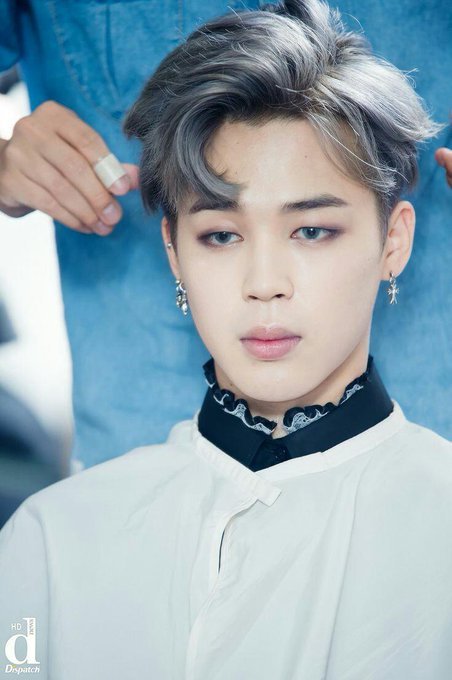Your Character’s Personality
Your Character’s Personality
Personality is the most important thing about your character.
So, whenever I see character sheets, most people just put a little paragraph for that section. If you’re struggling and don’t know what your character should say or do, what decisions they should make, I guarantee you that this is the problem.
You know your character’s name, age, race, sexuality, height, weight, eye color, hair color, their parents’ and siblings’ names. But these are not the things that truly matter about them.
Traits:
pick traits that don’t necessarily go together. For example, someone who is controlling, aggressive and vain can also be generous, sensitive and soft-spoken. Characters need to have at least one flaw that really impacts how they interact with others. Positive traits can work as flaws, too. It is advised that you pick at least ten traits
people are complex, full of contradictions, and please forgive me if this makes anyone uncomfortable, but even bullies can be “nice” people. Anyone can be a “bad” person, even someone who is polite, kind, helpful or timid can also be narcissistic, annoying, inconsiderate and a liar. People are not just “evil” or “good”
Beliefs:
ideas or thoughts that your character has or thinks about the world, society, others or themselves, even without proof or evidence, or which may or may not be true. Beliefs can contradict their values, motives, self-image, etc. For example, the belief that they are an awesome and responsible person when their traits are lazy, irresponsible and shallow. Their self-image and any beliefs they have about themselves may or may not be similar/the same. They might have a poor self-image, but still believe they’re better than everybody else
Values:
what your character thinks is important. Usually influenced by beliefs, their self-image, their history, etc. Some values may contradict their beliefs, wants, traits, or even other values. For example, your character may value being respect, but one of their traits is disrespectful. It is advised you list at least two values, and know which one they value more. For example, your character values justice and family. Their sister tells them she just stole $200 from her teacher’s wallet. Do they tell on her, or do they let her keep the money: justice, or family? Either way, your character probably has some negative feelings, guilt, anger, etc., over betraying their other value
Motives:
what your character wants. It can be abstract or something tangible. For example, wanting to be adored or wanting that job to pay for their father’s medication. Motives can contradict their beliefs, traits, values, behavior, or even other motives. For example, your character may want to be a good person, but their traits are selfish, manipulative, and narcissistic. Motives can be long term or short term. Everyone has wants, whether they realize it or not. You can write “they don’t know what they want,” but you should know. It is advised that you list at least one abstract want
Recurring Feelings:
feelings that they have throughout most of their life. If you put them down as a trait, it is likely they are also recurring feelings. For example, depressed, lonely, happy, etc.
Self Image:
what the character thinks of themselves: their self-esteem. Some character are proud of themselves, others are ashamed of themselves, etc. They may think they are not good enough, or think they are the smartest person in the world. Their self-image can contradict their beliefs, traits, values, behavior, motives, etc. For example, if their self-image is poor, they can still be a cheerful or optimistic person. If they have a positive self-image, they can still be a depressed or negative person. How they picture themselves may or may not be true: maybe they think they’re a horrible person, when they are, in fact, very considerate, helpful, kind, generous, patient, etc. They still have flaws, but flaws don’t necessarily make you a terrible person
Behavior:
how the character’s traits, values, beliefs, self-image, etc., are outwardly displayed: how they act. For example, two characters may have the trait “angry” but they all probably express it differently. One character may be quiet and want to be left alone when they are angry, the other could become verbally aggressive. If your character is a liar, do they pause before lying, or do they suddenly speak very carefully when they normally don’t? Someone who is inconsiderate may have issues with boundaries or eat the last piece of pizza in the fridge when they knew it wasn’t theirs. Behavior is extremely important and it is advised you think long and hard about your character’s actions and what exactly it shows about them
Demeanor:
their general mood and disposition. Maybe they’re usually quiet, cheerful, moody, or irritable, etc.
Posture:
a secondary part of your character’s personality: not as important as everything else. It is advised you fill this out after. Posture is how the character carries themselves. For example, perhaps they swing their arms and keep their shoulders back while they walk, which seems to be the posture of a confident person, so when they sit, their legs are probably open. Another character may slump and have their arms folded when they’re sitting, and when they’re walking, perhaps they drag their feet and look at the ground
Speech Pattern:
a secondary part of your character’s personality: not as important as everything else. It is advised you fill this out after. Speech patterns can be words that your character uses frequently, if they speak clearly, what sort of grammar they use, if they have a wide vocabulary, a small vocabulary, if it’s sophisticated, crude, stammering, repeating themselves, etc. I personally don’t have a very wide vocabulary, if you could tell
Hobbies:
a secondary part of your character’s personality: not as important as everything else. It is advised you fill this out after. Hobbies can include things like drawing, writing, playing an instrument, collecting rocks, collecting tea cups, etc.
Quirks:
a secondary part of your character’s personality, not as important as everything else. It is advised you fill this out after. Quirks are behaviors that are unique to your character. For example, I personally always put my socks on inside out and check the ceiling for spiders a few times a day
Likes:
a secondary part of your character’s personality, not as important as everything else. It is advised you fill this out after. Likes and dislikes are usually connected to the rest of their personality, but not necessarily. For example, if your character likes to do other people’s homework, maybe it’s because they want to be appreciated
Dislikes:
a secondary part of your character’s personality, not as important as everything else. It is advised you fill this out after. Likes and dislikes can also contradict the rest of their personality. For example, maybe one of your character’s traits is dishonest, but they dislike liars
History:
your character’s past that has key events that influence and shape their beliefs, values, behavior, wants, self-image, etc. Events written down should imply or explain why they are the way they are. For example, if your character is distrustful, maybe they were lied to a lot by their parents when they were a child. Maybe they were in a relationship for twenty years and found out their partner was cheating on them the whole time. If their motive/want is to have positive attention, maybe their parents just didn’t praise them enough and focused too much on the negative
On Mental and Physical Disabilities or Illnesses
if your character experienced a trauma, it needs to have an affect on your character. Maybe they became more angry or impatient or critical of others. Maybe their beliefs on people changed to become “even bullies can be ‘nice’ people: anyone can be a ‘bad’ person”
people are not their illness or disability: it should not be their defining trait. I have health anxiety, but I’m still idealistic, lazy, considerate, impatient and occasionally spiteful; I still want to become an author; I still believe that people are generally good; I still value doing what make me feel comfortable; I still have a positive self-image; I’m still a person. You should fill out your character’s personality at least half-way before you even touch on the possibility of your character having a disability or illness
Generally everything about your character should connect, but hey, even twins that grew up in the same exact household have different personalities; they value different things, have different beliefs. Maybe one of them watched a movie that had a huge impact on them.
Not everything needs to be explained. Someone can be picky or fussy ever since they were little for no reason at all. Someone can be a negative person even if they grew up in a happy home.
I believe this is a thought out layout for making well-rounded OCs, antagonists and protagonists, whether they’re being created for a roleplay or for a book. This layout is also helpful for studying Canon Characters if you’re looking to accurately roleplay as them or write them in fanfiction or whatever.
I’m really excited to post this, so hopefully I didn’t miss anything important…
If you have any questions, feel free to send a message.
- Chick
More Posts from Risingstarling and Others










Groenendael
The Groenendael is a variety of dog that is included in the Belgian Shepherd breed, but sometimes treated as a distinct breed. The Groenendael is recognized, either as a breed or a variety of the Belgian Shepherd, by all major kennel clubs. In the American Kennel Club, it is called the Belgian Sheepdog, a term otherwise synonymous with Belgian Shepherd Dog more broadly. Like all Belgian Shepherds, the Groenendael is a medium-sized, hard-working, square-proportioned dog. The Groenendael is recognized by its distinctive black coat.
Keep reading
miscommunication as a plot device makes me angry
if you just talked to each other but no

Checklist for character development.
Created by myself, compiled from questions gleaned from several sources, and some of my own additions.
It should be noted, that not every character will check every one of these things off. It is not REQUIRED to have all this information, but this checklist is, rather, a guideline for helping you think of your character as an entire, three dimentional being with thoughts, feelings, possessions, contradictions and background.
A character is 20% revealed to the reader, 80% writer/author/Mun knowledge. What the Reader sees is just the tip of the iceburg, but without the other 80% the character can’t help but come off feeling shallow. There’s nothing beneath the surface - KNOWING as much bout your character as possible, instrinsicly, in detail, intimately, can do nothing but help build believability and dimension to your character.
Use only the things on this list that you feel are important, but I would like to remind you that the reader learns a lot about a character NOT through exposition (that’s kind of a cheat, and always feels , to me, like a rather clunky way of conveying knowlege), but through their actions, quirks, thoughts, and even through the things they own and carry with them. What kind of food they eat and how they eat it. What they wear. What they carry in their wallets. I encourage you, as writers, to consider these things when creating a character, and encourage you MORE to leave the exposition out and tell us about your character through these other means!
If nothing else, this will give you a LOT to work with when writing with your character. Maybe it’ll spur you to write about the character’s parents. Or the relationship between them and their family. Maybe you’ll find yourself inspired to write something about how they lost everything in a fire - and the importance each remembered lost item held.
There is certainly no rule that says you HAVE to do it this way, but invariably, the most memorable characters are the ones that we as readers can relate with. It’s hard to relate with just words - but people - with beliefs and dreams and fears - that’s something we can get behind.
I certainly hope you find this useful, and since so many have been inclined to reblog and like this, I shall endeavor to add more character creation and writing tips, lists and excercises up on this blog!

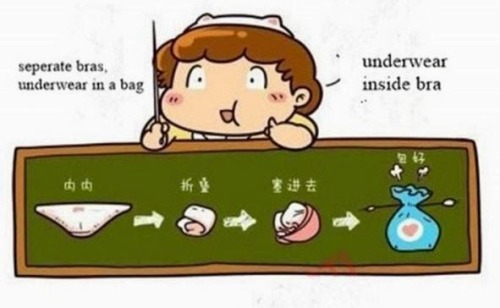
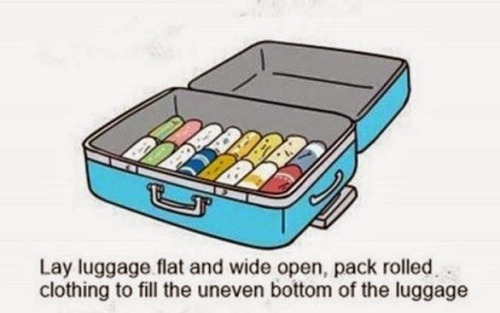

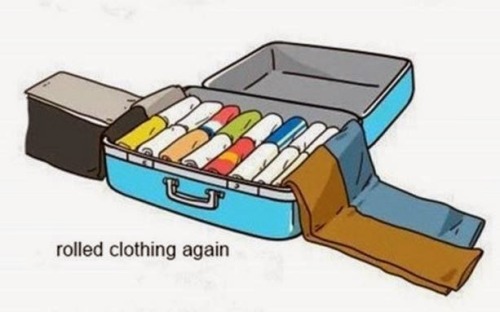
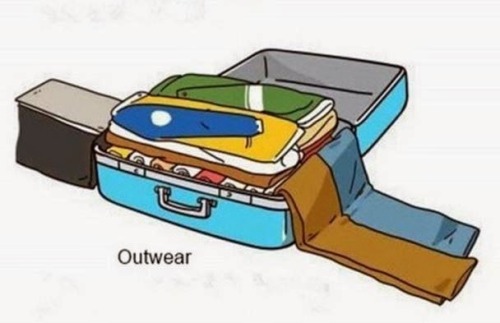

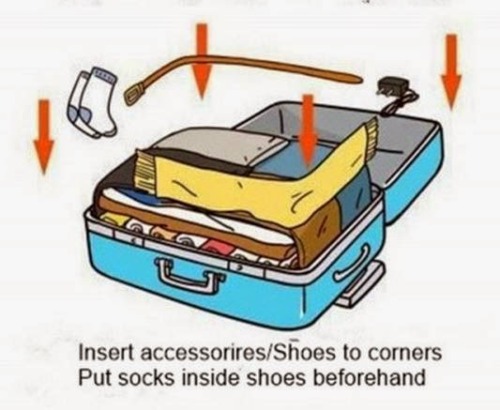

How to Pack Luggage?
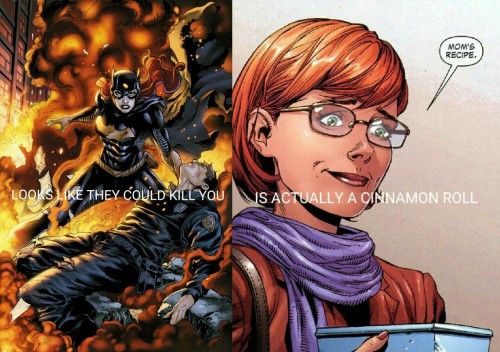
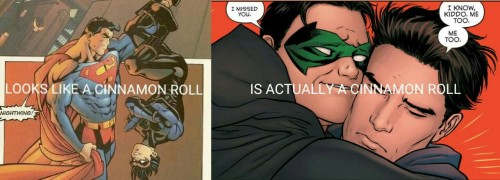

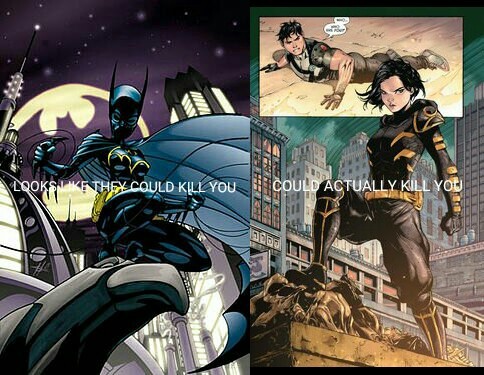
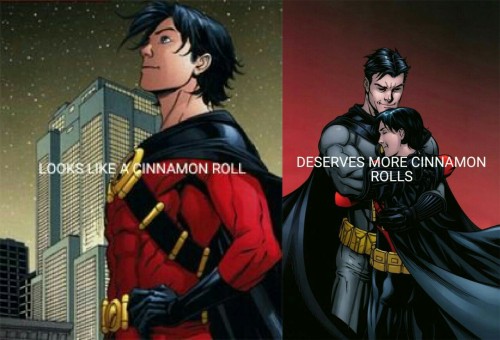
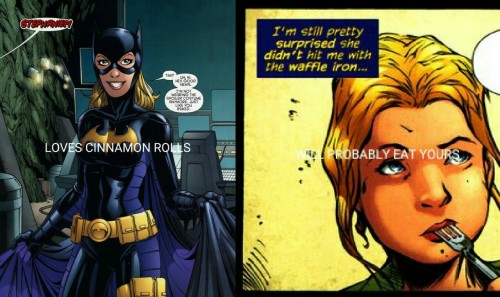
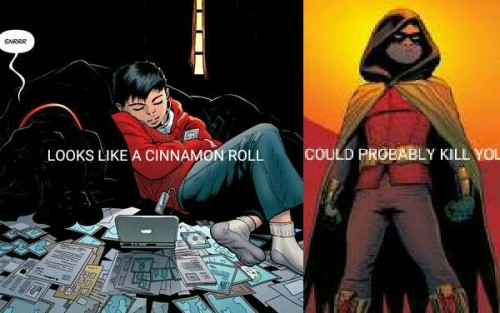
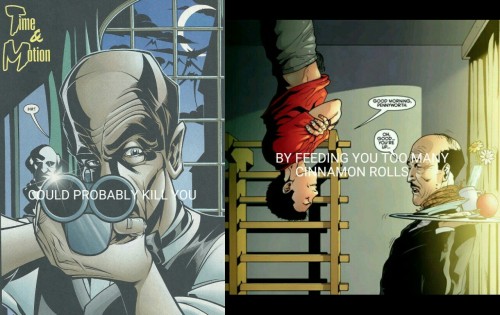

I’m sorry, apparently I have no impulse control.
Xanxus: Tell him about the birds and the bees.
Squalo, to Bel: They're disappearing at an alarming rate.



On the Shelves in Oxford this week we have two books focusing on two of our favourite things- literature and happiness!
Thinking with Literature offers a new perspective for mainstream literary criticism and the value of close reading, and demonstrates viability of cognitive analysis of all kinds of literature.
Happiness Explained shows how a wide range of factors can contribute to better and happier lives and how, together, they provide a new blueprint for assessing progress in terms of personal wellbeing.
Photos by Yasmin Coonjah for Oxford University Press.



Made this because my friend didn’t know this was a thing, so I thought maybe others don’t either? Hope it helps someone out!
-
 asterism-codex liked this · 3 weeks ago
asterism-codex liked this · 3 weeks ago -
 they-walk-the-acclaim liked this · 3 weeks ago
they-walk-the-acclaim liked this · 3 weeks ago -
 galaxyminusgravity liked this · 3 weeks ago
galaxyminusgravity liked this · 3 weeks ago -
 kpopcraxy liked this · 3 weeks ago
kpopcraxy liked this · 3 weeks ago -
 soundboxxx28 liked this · 3 weeks ago
soundboxxx28 liked this · 3 weeks ago -
 veatheirken liked this · 3 weeks ago
veatheirken liked this · 3 weeks ago -
 crackri0t liked this · 4 weeks ago
crackri0t liked this · 4 weeks ago -
 crackri0t reblogged this · 4 weeks ago
crackri0t reblogged this · 4 weeks ago -
 silverllynn liked this · 4 weeks ago
silverllynn liked this · 4 weeks ago -
 casiodana-aria-varta liked this · 1 month ago
casiodana-aria-varta liked this · 1 month ago -
 ontdekking liked this · 1 month ago
ontdekking liked this · 1 month ago -
 greenlillies liked this · 1 month ago
greenlillies liked this · 1 month ago -
 mygarbagedumpofablog reblogged this · 1 month ago
mygarbagedumpofablog reblogged this · 1 month ago -
 midnightgardenn reblogged this · 1 month ago
midnightgardenn reblogged this · 1 month ago -
 abnomi liked this · 1 month ago
abnomi liked this · 1 month ago -
 craftytrashnightmare liked this · 1 month ago
craftytrashnightmare liked this · 1 month ago -
 anonymocha liked this · 1 month ago
anonymocha liked this · 1 month ago -
 holynightmarefuel liked this · 1 month ago
holynightmarefuel liked this · 1 month ago -
 090909yh liked this · 1 month ago
090909yh liked this · 1 month ago -
 crashed-n-confused liked this · 1 month ago
crashed-n-confused liked this · 1 month ago -
 sketchykc liked this · 1 month ago
sketchykc liked this · 1 month ago -
 somewildthingsblog liked this · 1 month ago
somewildthingsblog liked this · 1 month ago -
 spudat0 liked this · 1 month ago
spudat0 liked this · 1 month ago -
 rose-bookblood reblogged this · 1 month ago
rose-bookblood reblogged this · 1 month ago -
 guest-conductor liked this · 1 month ago
guest-conductor liked this · 1 month ago -
 solarwitchgal reblogged this · 1 month ago
solarwitchgal reblogged this · 1 month ago -
 shlocklava-shoe liked this · 1 month ago
shlocklava-shoe liked this · 1 month ago -
 loganismybodyguard liked this · 1 month ago
loganismybodyguard liked this · 1 month ago -
 mis-fortuneee liked this · 1 month ago
mis-fortuneee liked this · 1 month ago -
 thegroovygroupie liked this · 1 month ago
thegroovygroupie liked this · 1 month ago -
 nerd-warning liked this · 1 month ago
nerd-warning liked this · 1 month ago -
 stormeko liked this · 1 month ago
stormeko liked this · 1 month ago -
 snflo liked this · 1 month ago
snflo liked this · 1 month ago -
 dearest-laito liked this · 1 month ago
dearest-laito liked this · 1 month ago -
 arsyeol reblogged this · 2 months ago
arsyeol reblogged this · 2 months ago -
 arsyeol liked this · 2 months ago
arsyeol liked this · 2 months ago -
 writeshine reblogged this · 2 months ago
writeshine reblogged this · 2 months ago -
 miguleoharraismywife liked this · 2 months ago
miguleoharraismywife liked this · 2 months ago -
 goawayimsleepin liked this · 2 months ago
goawayimsleepin liked this · 2 months ago -
 bun-i liked this · 2 months ago
bun-i liked this · 2 months ago -
 amethystcatbat liked this · 2 months ago
amethystcatbat liked this · 2 months ago -
 seaslugsss liked this · 2 months ago
seaslugsss liked this · 2 months ago -
 unprofessionalgalacticbaseballer liked this · 2 months ago
unprofessionalgalacticbaseballer liked this · 2 months ago -
 sillymoonpainter liked this · 2 months ago
sillymoonpainter liked this · 2 months ago -
 shigacajun reblogged this · 2 months ago
shigacajun reblogged this · 2 months ago -
 blossompoet liked this · 2 months ago
blossompoet liked this · 2 months ago -
 carrioncurrse liked this · 2 months ago
carrioncurrse liked this · 2 months ago -
 crocochill liked this · 2 months ago
crocochill liked this · 2 months ago
Right now this is just anything that comes to mind since I'm a complete noob at tumblr. I've been hearing about it for years but I never really felt like I had anything to say. Well all that has changed now and I figured I'd see what all the hype about tumlr is really about. Anyway don't take anything I say too seriously for now...I'll probably change it later when I become more comfortable with this website.
168 posts


